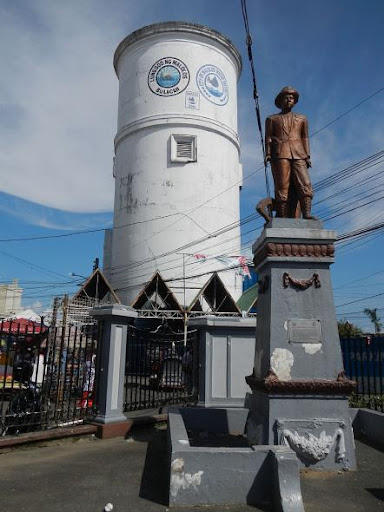Aguas Potables: Difference between revisions
No edit summary |
No edit summary |
||
| Line 16: | Line 16: | ||
==<h3>Reference:</h3>== | ==<h3>Reference:</h3>== | ||
== | ==External Links== | ||
[[Category:Istruktura]] | [[Category:Istruktura]] | ||
[[Category:Index]] | [[Category:Index]] | ||
Revision as of 02:00, 7 November 2023
Article by Kim
It was constructed in the American era in order to meet the Maloleños' need for clean water. This is one aspect of the American Health and Hygiene System's era-improvement strategy. The Philippines saw the construction of aguas potables in several places as a result of their improvement strategy.[1]
The town's Aguas Potables were constructed in 1922. On March 28, 1923, the building project was finished. It was given the honorary name "Mariano S. Tengco Water Works". It stands eighty feet tall (24.4 meters), which is about similar to a seven-story building. That is why it became Malolos' primary landmark. Additionally, it is situated next to the Malolos Cathedral at the front of the city's town market.
Because the existence of a running water system indicated the growing population and flow of prosperity in a town, it served as an icon during the time of the Americans. In our town of Malolos, the economy flourished alongside the increase in people. (Karatig Film Circle Production, 2020)
Aguas Potables was planned for demolition in 2015 because the building was tilting as a result of the weak construction materials. However, the National Museum of the Philippines decided to stop it in order to preserve it because it was almost a century old. Aguas Potables celebrates its 100th anniversary this year.
